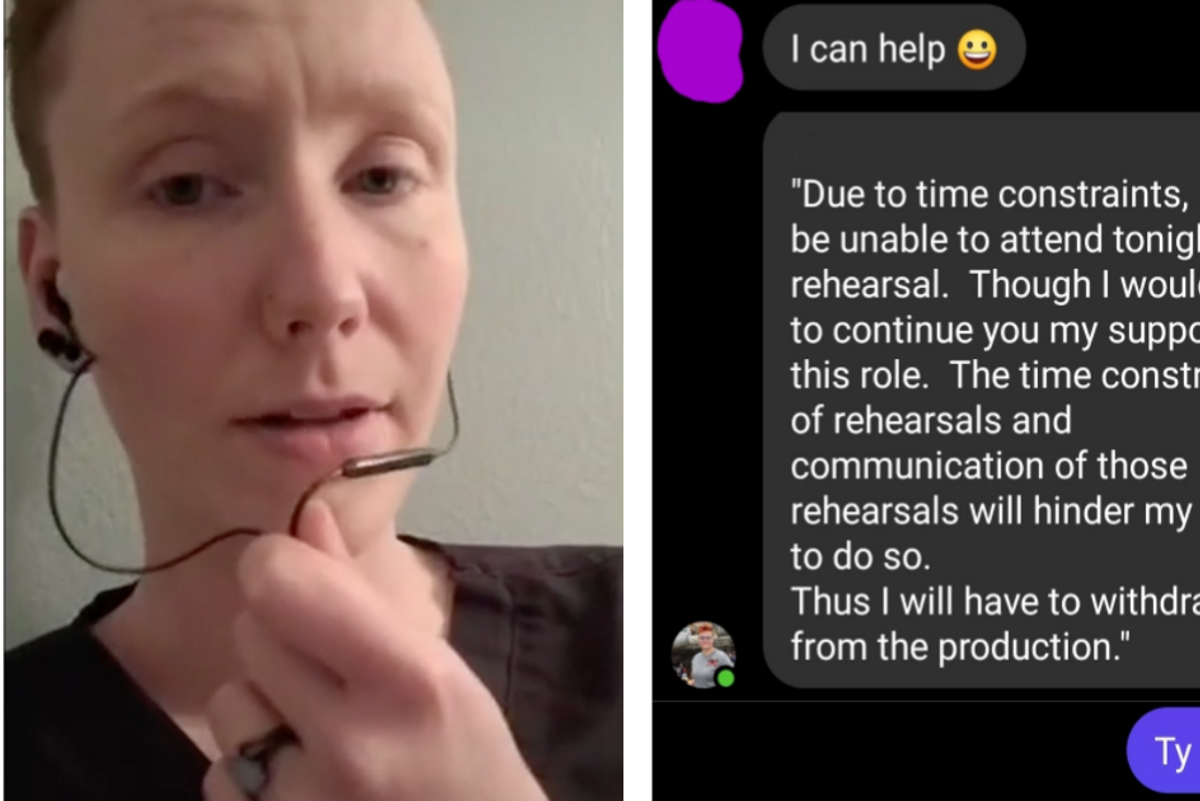
Christine Miserandino gave the world a new way to understand chronic illness in 2003 when she wrote a post on her blog, “But You Don’t Look Sick,” titled “The Spoon Theory.” Miserandino was looking for a way to explain to a friend what it’s like to live with lupus, so she used a set of spoons in a cafe to illustrate the finite amount of energy she has for each day.
The friend walked Miserandino through a typical day and each time she did an activity that used a significant amount of energy, the blogger removed a spoon from her hand.
Before she was able to get through her day, the friend ran out of spoons and couldn’t accomplish everything she set out to do. Miserandino explained that chronically ill people have fewer spoons and need to be judicious about how they use their energy.
Timber Talbot and a group of their friends took Spoon Theory to heart and organized a community on Facebook where people could share extra spoons with one another to help them get through the day.
“I had noticed that several close friends of mine were struggling with social anxiety and executive dysfunction and wanted to create a place where they could seek the help they needed when it came to difficulty completing tasks,” Talbot told Upworthy.
Talbot has executive dysfunction which makes it difficult for them to accomplish tasks.
Individuals with executive dysfunction struggle with planning, problem-solving, organization, and time management. It often occurs due to autism, ADHD, another disorder, or a traumatic brain injury.
“We are conditioned to believe that our worth is based on productivity and executive dysfunction limits productivity greatly. The feeling of hitting an emotional and mental wall is discouraging, frustrating and sometimes infuriating,” they said.
In 2019, Talbot created the Extra Spoons Facebook Group with about 70 others figuring out how to get through simple, everyday tasks due to feelings of fatigue, depression, or ADHD. This group is 100% volunteer-based, 100% free, and available to anyone who has executive dysfunction or is neurodivergent.
The Facebook Group gives members the ability to get help with simple administrative tasks such as scheduling doctors’ appointments or drafting short emails. The group is efficient. After a task is posted, a volunteer will usually show up to help in just a few minutes.
“Many common requests are asking for help finding doctors that take the requester’s insurance,” Talbot says. “There are often requests for body doubles to help people stay focused while completing tasks.”
A body double will quietly work alongside someone to help them focus on the task at hand by keeping their mind occupied so they don’t lose focus. Extra Spoons members will often body double for someone who needs assistance through Zoom or video chat.
Over the past two years, Extra Spoons has expanded to over 6,800 people.
“Extra Spoons gained traction during the upswing of the COVID-19 pandemic and has shown the pure kindness and resilience of the human spirit in a time of crisis,” Talbot said.
The group isn’t neatly divided between those who request help and those who volunteer.
“The thing about Extra Spoons is even when people join to ask for help, oftentimes they find themselves able to contribute to help people in other ways,” they said. “I do find that there are often times there turns out to be an equal number of volunteers to requests daily.”
The Extra Spoons Group is a fantastic example of how people can use Facebook Groups to help one another in real-time. Here’s an example of a group member helping Talbot write an email.

Photo courtesy of Timber Talbot
Miserandino’s theory and Talbot and friends’ ability to put it into action shows how by listening to people with chronic illness, we can find new ways to meet their needs. Now, with resources like Facebook Groups, those of us who have an extra spoon can find a place to lend it.
